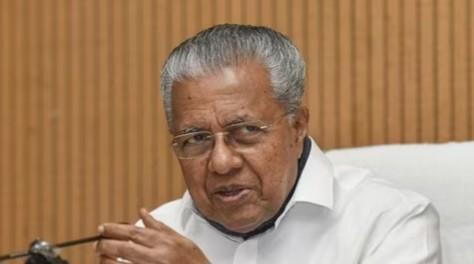
Attack on Federalism: Kerala CM on Bills to Remove Jailed PM, CMs
The Constitution (130th Amendment) Bill, 2025, tabled in the Parliament today, has been met with strong opposition from various quarters, including the state government of Kerala. Kerala Chief Minister Pinarayi Vijayan has termed the bill as a “blatant attack on federalism and the rights of states.” According to Vijayan, the bill seeks to “destabilise non-BJP governments by weaponising central agencies and jailing opponents on false charges.”
The bill, as proposed, seeks to amend Article 164 of the Constitution, which deals with the qualification and duties of a Chief Minister. The amendment would allow the President to remove a Chief Minister who has been arrested or detained for at least 30 days. Similarly, the bill would also enable the President to remove a Prime Minister who has been arrested or detained for at least 30 days.
Vijayan, while speaking to the media, strongly criticized the bill, saying that it is a clear attempt to undermine the rights of states and the democratic process. He pointed out that the bill is not a new concept, as a similar bill was introduced in the past, but it was rejected by the Constitution Commission. Vijayan expressed his concern that the bill, if passed, would be used as a tool to target non-BJP governments and their leaders.
The Kerala Chief Minister further stated that the bill is a clear example of the Central government’s attempt to dictate the political fate of states. He noted that the bill is a violation of the principle of cooperative federalism, which is enshrined in the Constitution. Vijayan emphasized that the state government would not accept any move that undermines the autonomy of the state and the rights of its citizens.
The opposition to the bill has been mounting, with several opposition parties and civil society groups also criticizing the move. The Congress, the Nationalist Congress Party (NCP), and the Samajwadi Party (SP) have all come out against the bill, citing concerns about its impact on democratic institutions and the rights of citizens.
The bill, which is being pushed by the Central government, has been met with criticism from several quarters, including the judiciary. The Supreme Court, in an earlier judgment, had held that the arrest and detention of a Chief Minister or Prime Minister is not a reason to remove them from office.
The move by the Central government has also been seen as an attempt to muzzle the opposition and silence dissenting voices. Critics of the bill have pointed out that it is a clear attempt to use the instruments of the state to target political opponents and silence them.
In the wake of the bill being tabled in the Parliament, there have been widespread protests and demonstrations across the country, with people from all walks of life expressing their opposition to the bill. The opposition parties and civil society groups have also launched a campaign against the bill, urging the government to withdraw it.
The debate on the bill has also opened up a wider discussion on the role of the Central government in the functioning of the country’s democratic institutions. The criticism of the bill has highlighted the need for a stronger and more independent judiciary to ensure that the rights of citizens are protected and the Constitution is upheld.
The move by the Central government has also been seen as an attempt to undermine the authority of the state governments and the federal structure of the country. The criticism of the bill has highlighted the need for a stronger federal structure and greater autonomy for the state governments to enable them to function effectively and make decisions that are in the best interests of their citizens.
In conclusion, the Constitution (130th Amendment) Bill, 2025, is a clear attack on the principles of federalism and the rights of states. The bill, if passed, would be used as a tool to target non-BJP governments and their leaders, and would undermine the autonomy of the state governments and the rights of their citizens. The opposition to the bill is a testament to the strength of the democratic institutions in the country, and the need for a stronger and more independent judiciary to ensure that the rights of citizens are protected and the Constitution is upheld.






